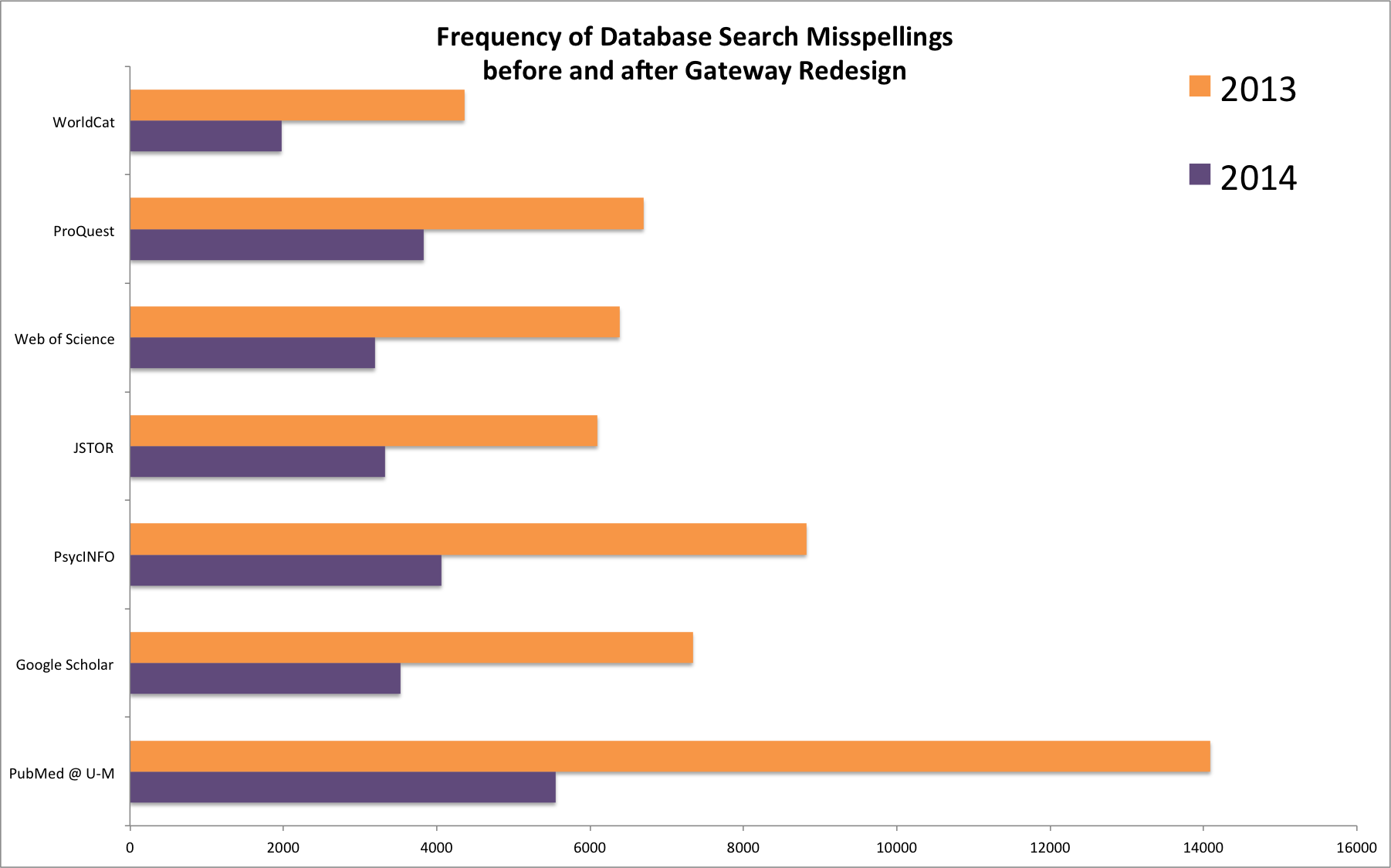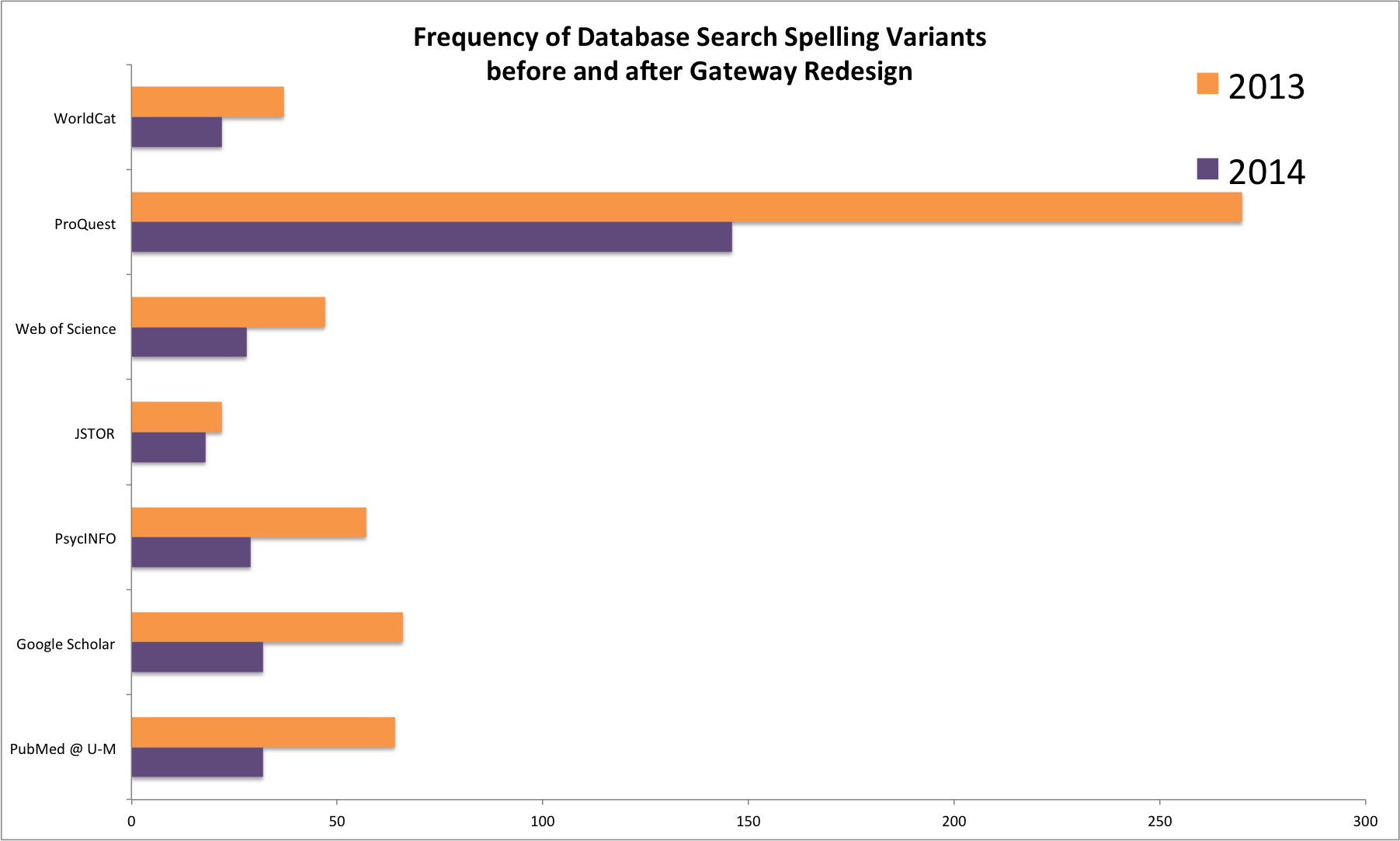When we redesigned the main page of the University of Michigan Library website, which we call the “Gateway,” we added a new “Frequently Used Databases” section to the standard navigation on the page. The databases selected for this navigation section, as the name indicates, are those that are most commonly used, searched for (through search query analysis), and recommended by reference librarians. The list includes:
- PubMed
- Google Scholar
- PsychInfo
- JSTOR
- Web of Science
- ProQuest
- WorldCat
Curious about whether user behavior changed after the new front page design was launched, we performed a search query analysis to answer the question, "Are users doing less searching from the Gateway page for those databases we selected as 'Frequently Used Databases'"?
We compared two time periods covering similar 8-month periods before and after the interface change (January 1 - August 31) for 2013 and 2014. (Recall that the design change was in October 2013.) We only looked at searches conducted from the Gateway page itself, not from other pages on the library website.
The overall number of recognizable searches for Frequently Used Databases on the Gateway page for the 2014 period decreased 53% from the same period in 2013. By comparison, the total number of searches on the Gateway page decreased 16%. When we excluded searches for the Frequently Used Databases, Gateway searches decreased 11%.
For January 1 - August 31, 2014, compared to the same time period in 2013, the overall number of searches for recognizable Quick Link databases decreased 53% (for context, the overall number of searches on the Gateway page decreased 16%, with all searches except Quick Link searches decreasing 11%). See Figure 1.

Figure 1: Users Entered Fewer Misspellings of Database Names after the Addition of a "Frequently Used Database" List
(click for larger version)
Interestingly, the number of misspelled variants of database names for the Frequently Used Databases also decreased in the same period, by 45% (see Figure 2). (We used a method similar to that described in “Database Names are Hard to Learn,” in which we searched our logs using wildcard searches and then selected likely database names from the list by hand.)

Figure 2. Users Spelled Database Names more Consistently after the Addition of a "Frequently Used Database" List
(click for larger version)
The data we used is available in a Google Sheet, “Library Tech Talk: Quick Links and Search Frequency Data.”